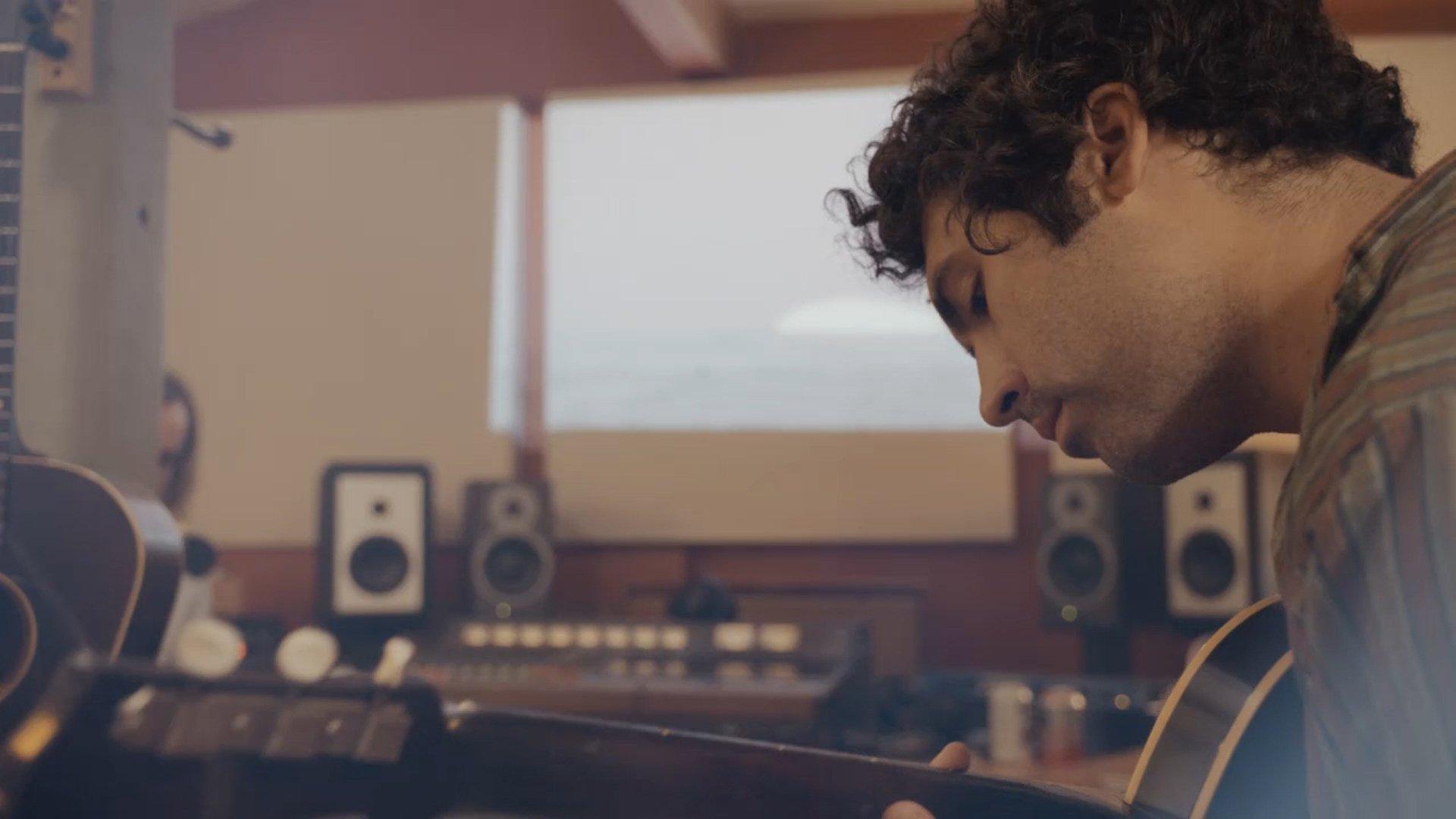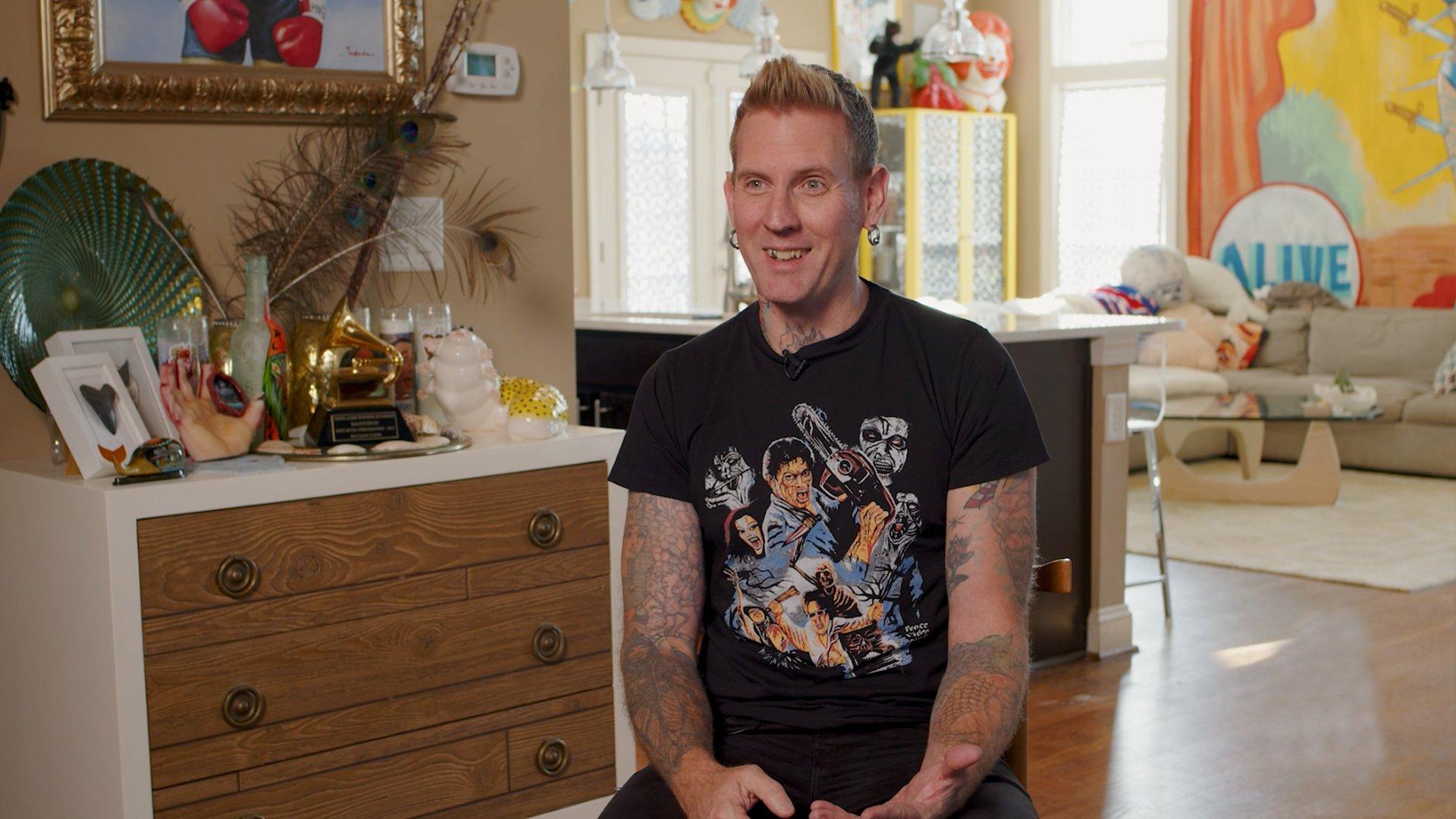For Keith Abrahamsson, A&R of Brooklyn-based indie music label Mexican Summer, music and surf go hand-in-hand.
Music colliding with visuals of epic surf left an impression on him from an early age as a fan of '70s and '80s heavily scored surf films like Crystal Voyager, the Australian film that follows surfer George Greenough on his quest in search of the perfect surf spot. "I think there's always been a really crucial marriage," he says on a phone call with the Recording Academy. "Music was such a crucial driving force to those moving images."
<iframe width="620" height="349" src="https://www.youtube.com/embed/7xPQm1oI3y4" frameborder="0" allow="accelerometer; autoplay; encrypted-media; gyroscope; picture-in-picture" allowfullscreen></iframe>
In a new feature film, Abrahamsson, who founded Mexican Summer with Andres Santo Domingo in 2008, wants you to escape to the place where surf and music intrinsically meet: the ocean.
Inspired by the spirit of the films he grew up watching, Abrahamsson's label joined forces with New York based surf shop Pilgrim Surf + Supply, owned by Abrahamsson's friend and film director Chris Gentile, to embark on a journey with eight surfers and 16 musicians. Filmed in Mexico, the Maldives, Iceland, Brooklyn and Los Angeles, the film captures how surfers find their epic wave and interact with local culture, and how musicians, Mexican Summer artists and friends, including Allah-Las, Connan Mockasin, Andrew VanWyngarden of MGMT and Peaking Lights, score the real-time surf.
Poetically narrarated by the late avant-garde filmmaker Jonas Mekas, the film aims to "Really capture the essence of that location with the music and the way in which it was shot," Abrahamsson says. At the same time the film expands some of the genres that may be associated with surf: "We didn't really take much inspiration from that particular aesthetic of surf rock. I think we wanted to expand it a little bit."
Before the film premieres in Los Angeles at The Palace Theatre on June 15 and the original soundtrack is released on June 14, the Recording Academy spoke with Abrahamsson, about the film's concept, surf music, environmentalism and more.
How did this project come about? And why surfing?
I skated a lot coming up as a kid. I never really surfed when I was younger, but I was always turned on by the surf aesthetic, specifically the soundtracks. You know, a lot of the more classic films that were coming out in the '70s and '80s, those soundtracks had a lot of appeal to me. Then I started surfing probably about five or so years ago. So I'm a fairly new surfer, but the music had always resonated with me from those films. I worked with a lot of artists who are also surfers. Then I became friends with Chris Gentile who directed the film and also owns his own surf company called Pilgrim.
[The idea for the film] kind of just organically happened. I had taken a trip to Nicaragua with a bunch of musicians and some surfers with the idea of making a film. This trip didn't end up being part of what ended up being this self-discovery film. We took this inaugural trip to Nicaragua, it was kind of disaster. It ended up being ... one disaster after the next while we were down there. We didn't end up really using any of that footage ... We knew we wanted to still make the film, so we just decided that we had to recalibrate things a little bit. I talked to Chris, he knew about the project. We talked a little bit more about it and decided that it would be great for him to get involved in it. Then we really ... rejigged the concept. We just expanded the idea a bunch more together and it became this bigger, more ambitious project once he got involved.
You mentioned you got into surfing and you also really liked the music. Can you talk about some of the soundtracks or songs that really spoke to you?
We've actually reissued a bunch of these soundtracks on our anthology. But a lot of the usual suspects that people who are surfing would know about: Morning Of The Earth, Five Summer Stories, Pacific Vibrations, Crystal Voyager. I mean, I could go on and on.
I wanted to talk about surf rock because I feel like that's what a lot of people think of when they think of surfing and music. Did it inspire it or did it inform the film at all?
Not really, no. I would say surf rock —in the more traditional way people think of it like when they think of adventures or music that you might have heard in Endless Summer which is incredible music, and we love Bruce Brown and everything that he did—we didn't really take much inspiration from that particular aesthetic of surf rock. I think we wanted to expand it a little bit. I think one of the bands that contributes to the soundtrack, the Allah-Las, they have a little bit more of a classic sound. More instrumental. More jangly kind of stuff. But it goes much further out, I would say. There's a lot of more ambient music. There's stuff that's more adventurous, more experimental pop writing, more traditional dance-oriented stuff with Peaking Lights. So it's a mixed bag of styles that we incorporate across the film. I would say we tried to step away from the more traditional surf rock thing.
For people that aren't familiar with surf culture and its relationship to music, how big of presence is music in surfing?
It's crucial. It's the same thing with like skate videos or classic skiing movies or snowboarding videos. When I was a kid a lot of the music I got into was through skateboarding videos. A lot of the punk rock and record labels that I found out about were really via [skate] ... I mean obviously this was pre-internet, too ... that culture was pretty instrumental in introducing me to a lot of music that I may not have otherwise come across. I think the same thing for surf movies throughout the '70s and '80s. One really helps feel the other, I think. There's not that many surf films that were like Endless Summer where there was an actual narrative with dialogue and a narrator. I mean, there was music that was part of that film, but it wasn't as integral a part of it as some of the later more mid-70's and later '70s. And then when you got into the '80s music was such a crucial driving force to those moving images. I guess as a long-winded way of explaining it to you, I think there's always been a really crucial marriage of the audio-visual with those kind of action-sports films. If that's what you want to call them.
The film is about the relationship between music and the waves. I'm wondering what that relationship means to you.
That's kind of a hard one to answer. I think it's an extension of what I was just saying before more than anything. I feel like when I see surfing or see skateboarding often times I will associate some of those things with music that I've heard in a film in the past. I always ... music is pretty intrinsically tied to these things for me. It always has been since I was a kid. I don't know if that exactly answers what the relationship means to me, but they just seem very ... like they're married. They're like one. One entity almost.
Is it kind of like the soundtrack to what you're doing type of thing?
Yeah, I guess so. I think a lot of people who grew up either skating or surfing or whatever would probably say the same thing. Maybe you even, if you're out there, you might even think of part of movie that you might have grown up watching. Or a certain song or something. I feel it just becomes part of you in a way.
You went to Mexico, you went to the Maldives, and Iceland in the film . Why these places?
We wanted to really strike some pretty distinct environmental differences with each of the places. I think a lot of people think when they think of surf locations, you kind of think like beautiful beaches ... like Windex color waves breaking. That's cool, the Maldives definitely had that vibe, but I think we were really interested in having a different flavor every trip. That kind of translated across everything. I think we wanted the environment and the waves to feel specific. We wanted the music for that particular location to feel specific. The camera shots. The edits. Everything ... So there's three vignettes in the film, and I think each vignette we wanted to just really give it a very distinct film that matched that particular location. When we were in Iceland it was very by design that we went there. We used a lot of drone footage. A lot of wide-panning crazy shots of the landscape. It's a little bit more bleak because Iceland the time of year we were there, that's just what it was, it was cold. It was kind of rainy a lot of the time. I think Connan Mockasin and Andrew VanWyngarden's soundtrack really reflects that feeling. I think we wanted to mirror that across all three vignettes. Really capture the essence of that location with the music and the way in which it was shot.
I went to Puerto Rico recently and as I was landing there was a whole bunch of plastic in the water. Is there any message you wanted to send involving environmentalism and taking care of the water with the film?
We saw the same kind of conditions pretty much everywhere we went. The same thing that you're talking about in Puerto Rico. It's just incredibly upsetting. I think there are a lot of foundations out there doing great things like Save the Waves and Conservation International. We're involved with some of those people on deeper levels, but also they're involved in supporting the film. At its screening and in general we're going to be working with Save the Waves to show the film during their festivals. They're very deeply involved in the conservation of shorelines, trying to do clean up with plastic ... It's not even really a surfing issue, right? It's a human issue. So I think anyone that's involved in ... just alive should care about it, you know? Which I know is not the case across the board but ... It's of course and obviously a very important issue for all of us.
In the film, footage of surfers is shown while the musicians are recording music. Tell me more about that setup.
The intention of that, that's a classic way for people to do scoring. We would go on these trips, you know the musicians came on the trips as well. Afterwards we'd go right into the studio. What we would do, we kind of whipped together this extremely rough cut for them. There was no real sequence, it was just a bunch of rough footage that we through together that could be projected in their space while they were composing material. That's what you're seeing is just them watching the footage and writing. Really the goal was to have him be really immersed in the trip and inspired by that experience, and then take that back with him to the studio. Being able to project the footage was just a way to try to keep them in that moment a little bit.
You wanted each vignette to represent each place you went to. Did you say, "Hey, this is kind of the vibe we had in Mexico, can you bring this out?" Or did you let the artists, the musicians, do their thing?
It was very free. I think we didn't want to bog anybody down with too many parameters. We just wanted the trip to do its work and then let them write whatever felt natural after that, you know?
You've got Peaking Lights involved. Andrew from MGMT. How did all these artists get involved in the documentary?
The majority of them we work with already. Peaking Lights, we worked with them in the past. We've put records out with them before. Connan is on the label. Andrew is ... Allah-Las are on the label. Andrew is just a really close friend of ours. He's played and collaborated with a lot of people on the label. And he's a really avid surfer. It just felt really natural to have him involved. And he and Connan are super close friends, so pairing them together as a writing pair felt pretty natural.
How did Jonas Mekas get involved in the film?
So we have a publishing and print here where we do books as well. It's called Anthology Editions, and we had done a book with him earlier that year. Well, we had been working on it with him for a couple of years. So we kind of had this connection to him. It didn't really occur to us that he would be good for the piece, and then I thought to myself, [to have him involved] would ... add this kind of ... I mean, he's such a legend in his own right in avant-garde cinema ... I think we really wanted to add this extra layer of, "What the f***? This is so weird." And I think it does add that. It just adds this really surreal layer to the film that we were hoping it would. He's got this thick Lithuanian accent and ... I don't know it feels like it fit perfectly. It was always meant to be. It was kind of an eleventh hour thing to be honest.
The film is called Self Discovery For Social Survival. How did you come up with the name?
It's kind of a mouthful, isn't it? Yeah. I just call it "Self Discovery", I never say the whole thing ... It just felt appropriate giving the times that we live in. I think given the times, not like we're trying to make some grand political statement because that is not what we're about, but I think we wanted to give people something escapist. Something that they could watch and hopefully attach themselves to. And see some of these waves and feel inspired and be like, "Oh, maybe I could do that. That doesn't look totally life threatening and crazy." That was a big part of what we wanted to do, and I think ... Yeah, giving people just a little piece of escapism in this time we live in.
What do you hope viewers get out of the documentary?
The trips themselves were taken in such small windows. The way in which surf films are made, obviously, you're at the mercy of nature to cooperate and deliver you good conditions. I think we were really lucky to walk into each of these situations with ten-day windows, basically, with each of the trips and to get usable footage. So I think what we really wanted in the end was to create something that was going to moving and that would make us feel like we accomplished what we set out to do. I think also important to note that having Jonas Mekas narrate the project was very surreal and a dream. It was one of the last projects he worked on before he passed away, so that was amazing. I think all around we just wanted it to be a very collaborative and creatively fulfilling project, and I think that we got that for sure.
Self Discovery For Social Survival is out digitally on June 18 and available for pre-order now at iTunes.
How A California Fire Affected Tame Impala's Much-Awaited Next Album





